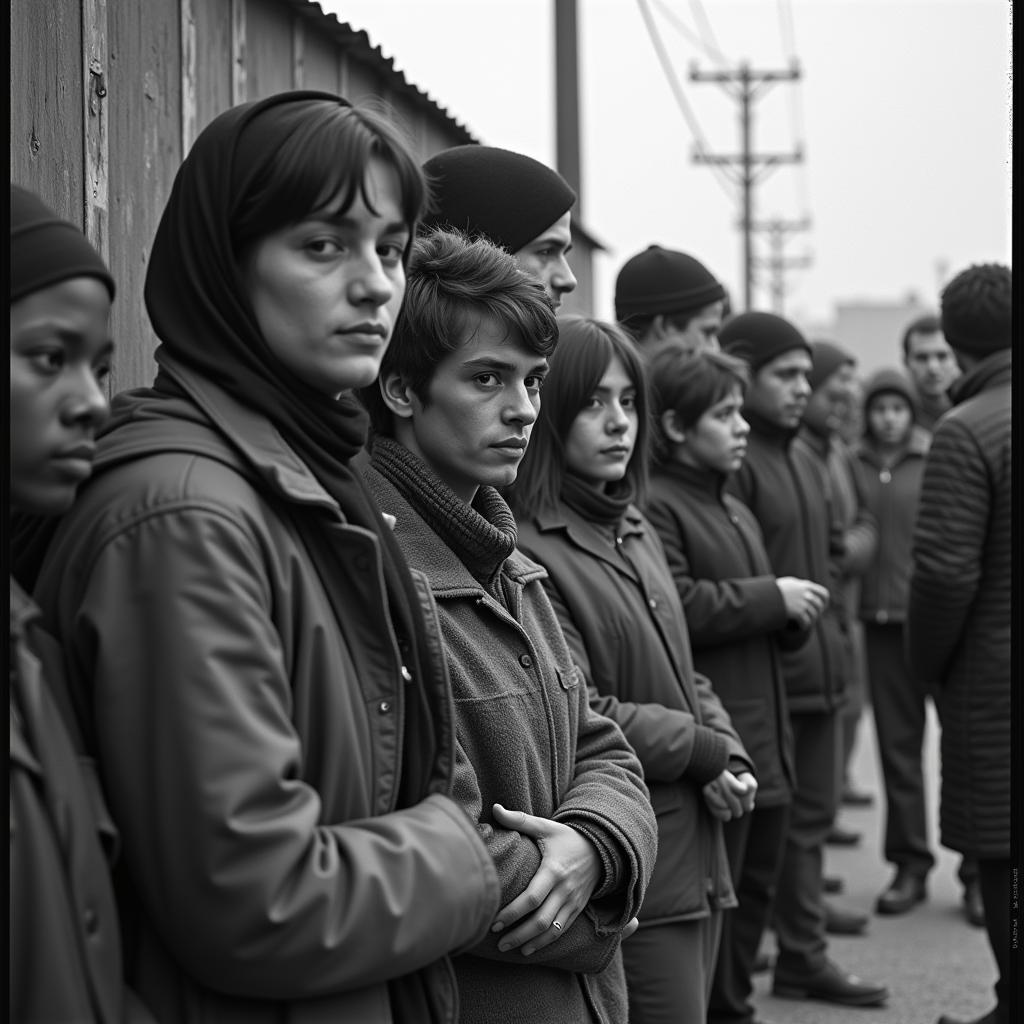The Great Depression, a period of unprecedented economic hardship that gripped the United States throughout the 1930s, profoundly reshaped American society. In What Three Ways Did The Depression Change American Society? This article explores the significant societal shifts brought about by this era, examining the impacts on families, the government’s role, and the psychological landscape of the nation.
The economic collapse that triggered the Great Depression had far-reaching consequences, impacting nearly every facet of American life. Unemployment soared to record levels, leaving millions without work and struggling to survive. This widespread economic insecurity led to significant transformations in family structures, the relationship between citizens and the government, and the overall psychological well-being of the nation. Understanding these changes is crucial to appreciating the lasting legacy of the Great Depression.
The Crumbling Foundation: Families in the Depression
The Depression’s impact on families was devastating. Traditional family structures were strained as unemployment forced men, traditionally seen as breadwinners, into a position of dependence. This often led to feelings of shame and inadequacy, undermining their roles within the family unit. Many families were forced to rely on charitable organizations for basic necessities like food and shelter, further eroding their sense of self-sufficiency.
The Depression also saw a rise in the number of women and children entering the workforce. While this provided some economic relief, it also challenged societal norms and created new anxieties. Women often faced discrimination and lower wages, while child labor became increasingly common, depriving children of education and exposing them to hazardous working conditions.
A New Deal: The Expanding Role of Government
In what three ways did the Depression change American society? One significant shift was the expanding role of government. Before the Depression, the prevailing political philosophy favored limited government intervention in the economy. However, the severity of the crisis forced a dramatic re-evaluation of this stance.
President Franklin D. Roosevelt’s “New Deal” programs represented a radical departure from previous government policies. These initiatives aimed to provide relief, recovery, and reform, addressing the immediate needs of the unemployed while also implementing structural changes to prevent future economic disasters. Programs like the Civilian Conservation Corps (CCC) and the Works Progress Administration (WPA) provided jobs for millions of Americans, while Social Security established a safety net for the elderly and disabled.
These programs not only provided crucial economic support but also fundamentally altered the relationship between the government and its citizens. The government took on a more active role in ensuring the well-being of its people, a shift that continues to shape American society today.
Scars on the Psyche: The Psychological Impact
Beyond the tangible economic and political changes, the Depression also left deep psychological scars. The pervasive unemployment and economic hardship led to widespread feelings of hopelessness, despair, and anxiety. Suicide rates climbed, and many individuals struggled with mental health issues stemming from the stress and uncertainty of the era.
The psychological impact of the Depression extended beyond individuals to the broader cultural landscape. The American Dream, the belief that hard work and determination would lead to success, was severely challenged. This loss of faith in the future had a profound impact on the national psyche, contributing to a sense of disillusionment and a questioning of traditional values.
 People waiting in line for food during the Depression
People waiting in line for food during the Depression
Conclusion
In what three ways did the Depression change American society? The Great Depression fundamentally reshaped American society by altering family dynamics, expanding the role of government, and leaving lasting psychological scars. The hardships of this era led to profound shifts in social norms, political ideologies, and the overall psychological landscape of the nation. While the Depression was undoubtedly a time of immense suffering, its legacy also includes the development of crucial social safety nets and a greater understanding of the importance of government intervention in times of crisis. Understanding the ways in which the Depression changed American society is vital for navigating present-day challenges and building a more resilient future.
FAQ
- What was the main cause of the Great Depression?
- How did the New Deal change the role of government?
- What were some of the psychological effects of the Depression?
- How did the Depression impact family structures?
- What were some of the long-term consequences of the Great Depression?
- How did the Depression affect different groups in society?
- What lessons can we learn from the Great Depression?
Need support? Contact us 24/7 at Phone: 02043854663, Email: [email protected], or visit us at Khu 34, Bac Giang, 260000, Vietnam.